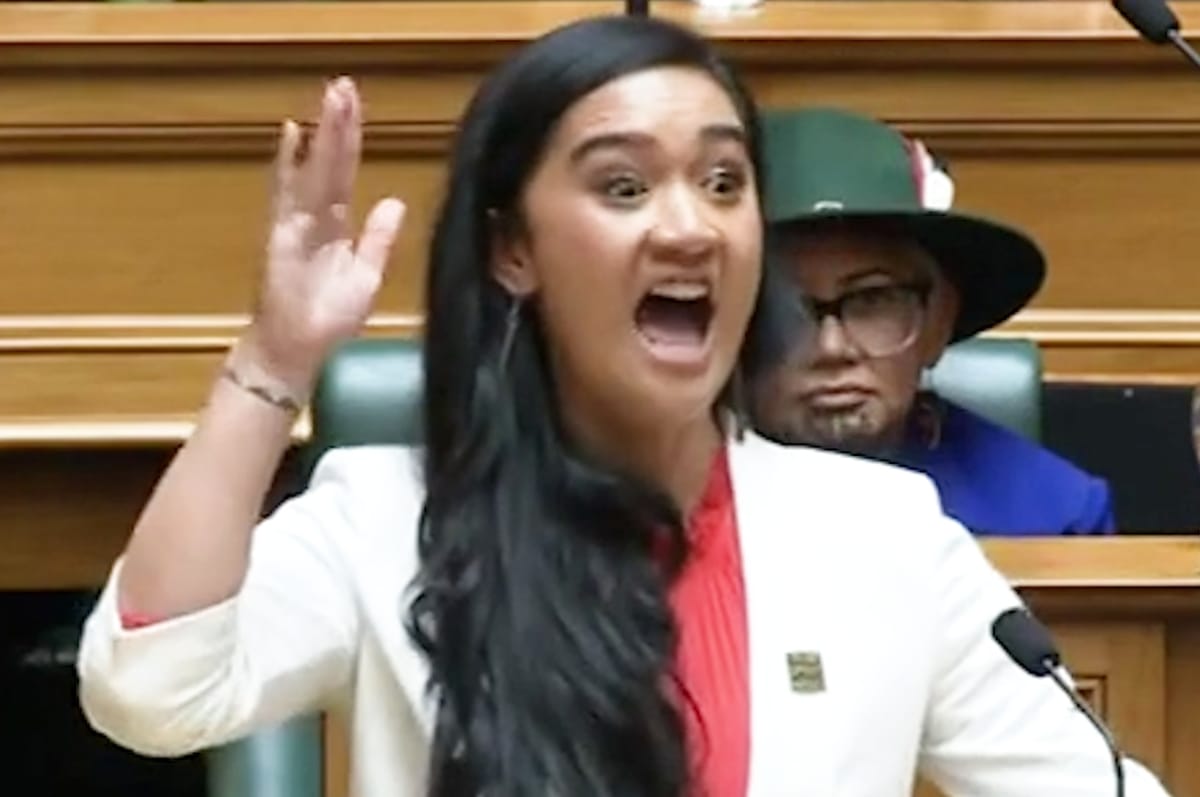This 21-Year-Old Maori Woman Who Became New Zealand’s Youngest MP Performed The Haka In Her First Speech
“I will die for you in these chambers. But I will live for you outside these four walls,” 21-year-old Hana-Rawhiti Maipi-Clarke said.

In a groundbreaking moment in New Zealand’s political history, 21-year-old Māori woman Hana-Rawhiti Maipi-Clarke became the country’s youngest member of parliament in 170 years, delivering a powerful maiden speech.
As part of her first speech to parliament on Dec. 20, Maipi-Clarke, who represents the Hauraki-Waikato Māori seat performed the haka, a traditional Indigenous war dance, and spoke about the rights of New Zealand’s Indigenous communities.
In her speech, Maipi-Clarke said that it had not been her plan to become an MP.
“I was perfectly fine growing my kumara [sweet potato] and learning maramataka [Māori calendar],” she said. “But this house kept tampering with things they shouldn’t be touching. And that’s why I left the māra [garden] to come here.”
“In only a couple of weeks, in only 14 days, this government has attacked my whole world from every corner,” she said. “Health, taiao [environment], wai [water], whenua [land], natural resources, Māori wards, reo [language], tamariki [children], and the right of me and you to be in this country under Te Tiriti [the Treaty of Waitangi],” she said, calling out the new right-wing government’s attempts to institute anti-Māori policies.
“How can I not take anything personally when it feels like these policies were made about me?” she said.
She dedicated her speech to the children of New Zealand, saying that no matter what comes out of the government, she will ensure that they hear them.
“Never fit in. You are perfect. You are the perfect fit,” she added.
“I am at your service in and outside of parliament,” she said. “I will die for you in these chambers. But I will live for you outside these four walls.”
Since taking power in November 2023, the right-wing government under prime minister Christopher Luxon has begun rolling back Indigenous rights.
The government said it is looking to reinterpret the Treaty of Waitangi, the country’s 180-year-old founding document.
Signed by British colonists and Māori chiefs, the treaty set out the rights of Māori people, how resources are to be allocated and political power is recognized.
It has announced plans to close the Māori Health Authority, Te Aka Whai Ora, set up by former prime minister Jacinda Ardern’s government and change the names of some departments from Māori to English.
The move has been widely criticized by health experts, who say it will be particularly damaging for Māori communities, which have higher smoking rates and associated health risks.




